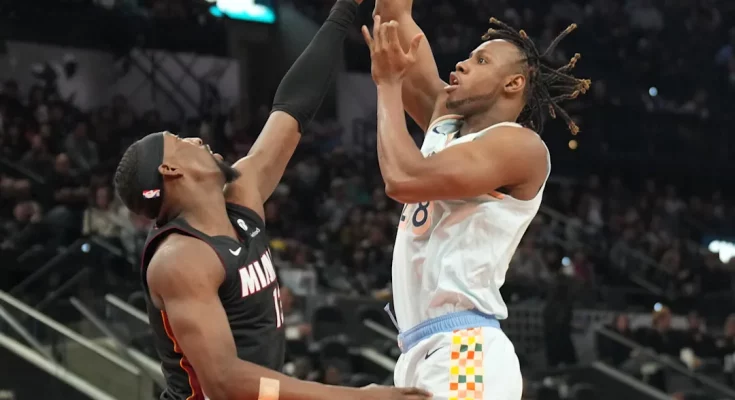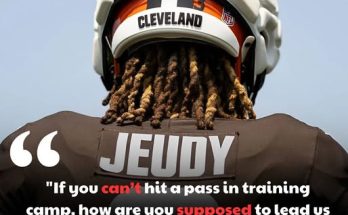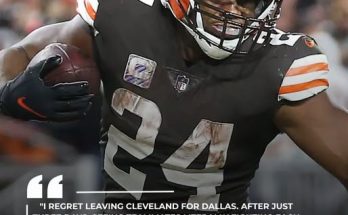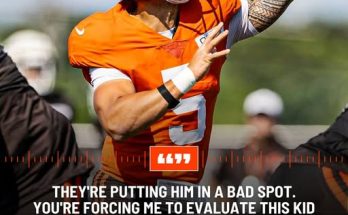In a league where player movement continues to define each NBA offseason, few developments stir the pot like a surprising free agent declaration—especially when it involves a potential addition to a championship contender. That’s precisely what’s happening now, as free agent big man Charles Bassey has made it known he has no interest in taking his talents overseas. Instead, he has his eyes locked on Boston. Yes, the Boston Celtics—the reigning NBA champions who many believed were done tinkering with their roster—may be staring at a quiet but impactful frontcourt reinforcement in the making.
Bassey’s desire to join the Celtics is not just about chasing a ring or latching onto a superteam. It’s the convergence of opportunity, need, and redemption. At just 24 years old, the Nigerian-born center still has untapped potential, and his injury-riddled stint with the San Antonio Spurs left much to be desired, both for himself and for fans who hoped to see him evolve into a rotation-worthy force. Now fully recovered and working through intense training regimens, Bassey is vocal about proving he belongs in the NBA. And what better way to do that than with the Celtics—who suddenly find themselves thin in the frontcourt?
It’s a shocking turn of events not just because Bassey has publicly made his ambitions clear, but because Boston wasn’t expected to be a major player in the big man market this summer. After winning the title and dealing with an inflated payroll near half a billion dollars, the Celtics were assumed to be in consolidation mode—trading veterans, emphasizing internal development, and leaning heavily on core stars like Jayson Tatum and Derrick White. But that assumption took a hit with the likely departures or reduced roles of key frontcourt players. Kristaps Porziņģis may not be ready to start the season, Al Horford is flirting with retirement, and Luke Kornet’s future remains uncertain. This has created an unexpected void that Bassey could potentially fill.
Bassey isn’t your typical flyer. He brings a rugged, physical style of play that contrasts Boston’s more finesse-oriented bigs. While his NBA resume is modest—averaging 3.3 points and 3.5 rebounds in just over 7 minutes per game across limited stints—his per-36 numbers are more revealing. He boasts nearly 13 rebounds and 2.5 blocks per 36 minutes, numbers that indicate his ability to produce when given an extended run. He’s also a legitimate rim protector with a 7-foot-3 wingspan and a high motor, traits that align well with Boston’s defensive identity under Joe Mazzulla.
But more than just the numbers, it’s Bassey’s mindset that’s catching the attention of observers around the league. He’s been working out at training facilities across the country this offseason, reportedly scrimmaging with NBA-level talent and holding his own. Several scouts have noted that he’s moving better than ever, showing a spring in his step that wasn’t present last season. He’s fully healed from the season-ending meniscus tear he suffered in March 2023 and is said to be in the best shape of his career. The former Western Kentucky standout believes now is the time to rewrite the narrative.
His connection to Boston isn’t entirely out of the blue either. Multiple league sources have indicated that Bassey and his camp have been in informal contact with several teams, but his preference remains clear. He sees Boston not just as a title contender, but as a place where he could earn meaningful minutes and carve out a real role. The Celtics’ system, which thrives on switchable defenders, second-chance points, and timely rim protection, plays to Bassey’s strengths. And with Brad Stevens always open to low-risk, high-reward acquisitions, a training camp invite or non-guaranteed deal wouldn’t be out of the question.
Still, Bassey’s road to Boston—or any NBA roster for that matter—is far from guaranteed. The Celtics are expected to use one of their two-way contracts on a young developmental prospect, and they’ve been rumored to be eyeing international talent and summer league standouts. But Bassey’s NBA experience and physical maturity could separate him from that crowd. For a team that wants to maintain its championship edge without taxing its starters, adding a physically dominant, defensively capable big man to eat up regular season minutes could be a savvy play.
Of course, there are skeptics. Some analysts argue that Bassey’s offensive limitations—particularly his inability to stretch the floor—make him a poor fit for Boston’s five-out system. Others question whether he’s truly recovered from his knee injury or if the hype around his offseason work is just smoke and mirrors. And yet, in a league where backup bigs are becoming increasingly valuable due to load management and injury concerns, Bassey’s tools and upside make him a worthwhile gamble.
There’s also a cultural and inspirational component to Bassey’s story that makes this potential union all the more compelling. Hailing from Lagos, Nigeria, he moved to the United States as a teenager to chase his basketball dreams. He was once ranked as the No. 6 high school prospect in the nation before declaring for the NBA Draft. Injuries and inconsistent roles derailed what could have been a smoother trajectory, but he never stopped believing in his potential. Signing with a global brand like the Celtics would not only resurrect his career but serve as a powerful message to young African players aspiring to reach the NBA.
From Boston’s perspective, adding Bassey is the kind of move that makes sense for both the short and long term. With Al Horford aging out and Porziņģis’s durability always in question, Boston needs insurance. While Bassey wouldn’t be expected to log 30 minutes a night or take over games, his presence as an athletic rebounder and defensive disruptor could provide balance in matchups where spacing isn’t as crucial. He could be deployed situationally, particularly against teams with dominant interior scorers or when Boston needs a shot of energy in second units.
Financially, a deal for Bassey wouldn’t stress Boston’s already bloated cap. A veteran’s minimum or partially guaranteed contract could work under their current structure, especially with the new second apron rules encouraging front offices to be creative with roster construction. Brad Stevens has already shown a knack for finding value in overlooked players—from Sam Hauser to Luke Kornet—and Bassey could be the next gem to shine under the bright lights of TD Garden.
It’s also worth noting the timing. With training camps just weeks away and teams finalizing their rosters, Bassey’s declaration that he won’t entertain overseas options puts pressure on NBA teams to act now. For the Celtics, that pressure may be internal. They know they have a championship target on their backs heading into next season. Depth will matter more than ever. And with young teams like the Pacers, Thunder, and Magic ascending, staying a step ahead means fortifying every position, especially one that’s seen attrition in recent months.
Celtics fans, meanwhile, seem intrigued by the possibility. Social media has lit up with speculative lineups, with many supporters eager to see what a revitalized Bassey could offer in green and white. Some even see echoes of a young Kendrick Perkins—a no-nonsense enforcer who didn’t need touches to impact the game. While comparisons should be made cautiously, Bassey’s physicality and mentality certainly mirror that archetype.
Ultimately, the next few weeks will reveal whether Boston and Bassey can turn mutual interest into reality. For now, one thing is certain: a player who was once teetering on the edge of basketball obscurity has made himself relevant again with one bold statement. He wants to be a Celtic. And in a summer of surprises, this could be one of the most quietly significant storylines to watch.
If Bassey does end up in Boston, it won’t be because he was the flashiest signing or the most talked-about name. It will be because both player and team recognized a fit born from necessity, timing, and a shared hunger to prove something more. That kind of chemistry—however unconventional—is sometimes what championships are made of.



